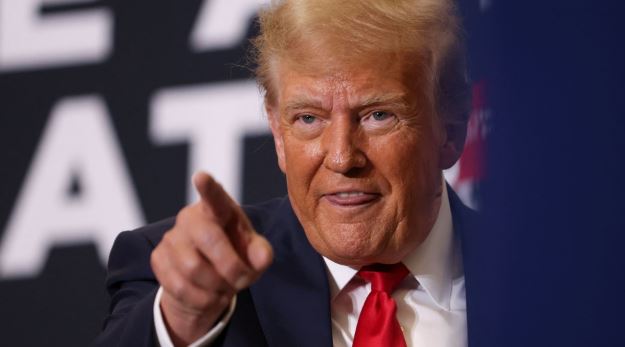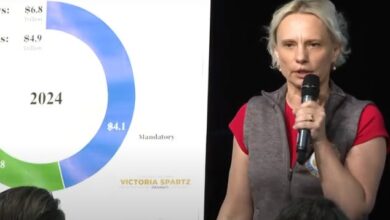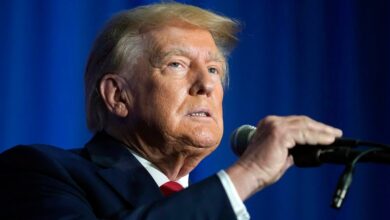Trump Urges Supreme Court to Delay Hearing Immunity Claim, Preferring Lower Court’s Initial Review

Former President Donald Trump has recently called upon the U.S. Supreme Court to refrain from expediting a review of his claim of presidential immunity regarding his actions during his tenure. This request comes amid ongoing legal challenges and discussions around the extent of legal immunity granted to a president or former president under U.S. constitutional law.
Trump’s Immunity Claim and Legal Context
- Federal Criminal Charges: On August 4, 2023, following his plea of not guilty to four federal criminal charges, Trump asserted on his Truth Social platform that the Supreme Court must intervene. He implied that his actions, taken while in office, should be considered untouchable under presidential immunity.
- Precedent and Supreme Court’s Role: Trump has previously raised broad claims of presidential immunity, though with limited success. The Supreme Court has dealt with presidential immunity only in a limited number of cases, none of which involved indictments of a former president. This novel scenario suggests that the Supreme Court is likely to hear the issue on appeal, given the unprecedented nature of these cases and their implications for the presidency and the nation.
- Unsettled Legal Territory: The question of the extent of a president’s legal immunity remains an unsettled area of constitutional law. Unlike Congress members, whose immunity for official acts is explicitly covered under the Constitution, presidential immunity lacks clear constitutional definition. This ambiguity has led to only a handful of Supreme Court decisions providing precedent on the matter.
The Crux of Legal Debate
- Analyzing Trump’s Actions: Legal analyses are likely to focus on whether Trump’s actions, such as asking Department of Justice officials to declare the 2020 election “corrupt” or initiating payments to suppress negative publicity, fell within the permissible boundaries of executive policy-making authority. If deemed within these boundaries, certain acts might be considered immune from prosecution.
- Potential Impact on Future Presidencies: Another critical aspect of the legal discussion is whether indicting a president for borderline conduct might set a precedent that could limit the ability of future presidents to perform their constitutional duties. The debate hinges on whether such acts, even if deemed unacceptable, fall within the discretionary power necessary for presidential responsibilities.
- Supreme Court’s Balancing Act: The Supreme Court faces the task of balancing the constitutional interest in granting the presidency expansive discretion and power against the broader public interest in upholding the rule of law for all, including the president. The absence of clear guidelines for this balance means that political and ideological considerations could influence the court’s decision-making process.
Looking Ahead
As Trump’s legal challenges proceed, the Supreme Court’s eventual involvement and decisions will be pivotal in shaping the contours of presidential immunity. This development could have far-reaching implications not only for Trump’s case but also for the broader understanding of presidential powers and limitations under U.S. law. The unfolding legal narrative will be closely watched by legal experts, political analysts, and the public alike, as it addresses fundamental questions about the rule of law in American democracy.




